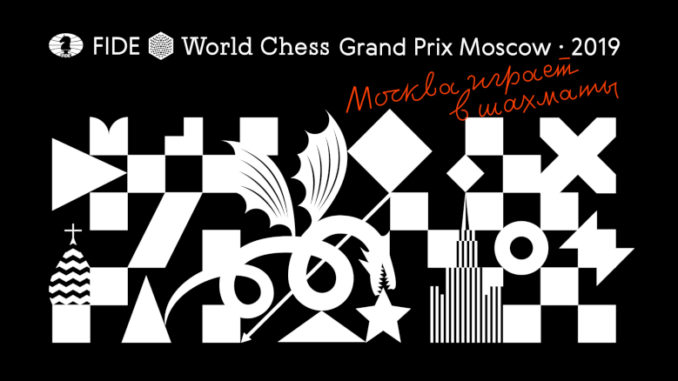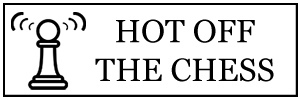
Ian Nepomniachtchi of Russia has won the 2019 FIDE Moscow Grand Prix. He defeated countryman, Alexander Grischuk, in the final.
Their two classical games were drawn, with neither looking to push in the first game, which was a rather quiet Grunfeld Defence. When the Berlin came out in the second game, it already looked as though the final would be settled on tie-breaks. And indeed, the game only reached move 23 before they shook hands and divided the point.
Certainly, allowing draws from move 1, has trodden on the feet of the classical chess fan here and there in this tournament. More from me on that in the next day or two.
When it came to the rapid tie-breaks, there may well have been a few groans upon seeing the Petrov in game one. In keeping up the pattern so far in this match, the game was not very exciting. The players got their pieces out and then steadily traded them off one by one, before deciding to repeat. The point was split in 37.
It all changed in game 4. Nepomniachtchi took the white pieces and opened with the Italian Game (otherwise known as the Guioco Piano). The Italian Game tends to be one of the first openings chess players learn, due to its logic and easy to follow development. It is rarely seen in super-top-level chess, however. This is largely because, although it is solid, it is not very dynamic and can actually be a bit boring. When it is seen, it tends to be in cases like this, where the players want something of a comfort zone, minimal risk — when they just want to play and see if anything presents itself. Well, that is my feeling of it anyway.
After teasing us with a couple of repetitions, (16.Ne3 Qd7 17.Nc4 Qd5 18.Ne3 Qd7), something did indeed present itself for Nepomniachtchi, who declined repetition and pushed with 19.b5, shown in the diagram, below.
This move embarrasses the Nc6 a little. Unfortunately for Alexander, it can’t be maintained on c6, which is a good square for it, as we know. So where does it go? The only real possibility was a5. However, this of course puts the piece on the edge of the board where it has much less scope.
There followed, 19…Na5 20.c4 and we already see that this placement of the knight is no short-term thing. After, 20…Bd4 21.Rb1 axb5 22.axb5 Ree8 23.c5 Black was facing some problems. If we look at the diagram, below, we can see that the knight on the rim was only the start of Grischuk’s problems. His position in general lacked any real harmony and white also had more space.
Grischuk tried to exchange some pieces, which is textbook for the defender, especially with a development and space disadvantage. Unfortunately, though, after 23…Nd5 24.Nxd5 Qxd5, Nepomniachtchi added some exchanges of his own. There followed, 25.Nxd4 exd4 26.Rxe8+ Rxe8 27.Bf4!
Again, this move takes advantage of the placement of the black knight, which is still on a5. The problem for Black, is that he needs to be able to play …b6. Should he, for example, play 27…c6, White retreats the bishop to d2 and is winning. Any …b6 then is simply met by cxb6, which is pure pain for Black.
Grischuk chose 27…Re7, which was all he had available really and this illustrates just how bad things were for him. Playing such moves at this stage of the game usually means that something has gone very wrong. One wants the long-range pieces free in such positions.
And from here, Nepomniachtchi played powerfully. 28.Qa4 b6 29.c6 Kh7 30.Rb4 saw him pick up a pawn and he never looked back. 35…Re7(??) was the final nail in Grischuk’s coffin. As shown in the following diagram, it allowed 36.Qxe7+(!!), when Black is getting mated or going for 36…Qxe7 37.Rd7. Alexander Grischuk accepted defeat and Ian Nepomniachtchi was crowned Champion in Moscow.
Congratulations to Ian Nepomniachtchi, then, and commiserations to Alexander Grischuk, who will no doubt be very disappointed to have lost this game. To me, he looked very tired after the match and we mustn’t forget what a toll these tournaments take on the players.
We can now look forward to the second of four tournaments in this Grand Prix series, which will be in Latvia between July 11 and 25. But we don’t have to wait that long for top level chess, as Norway Chess is just around the corner!

